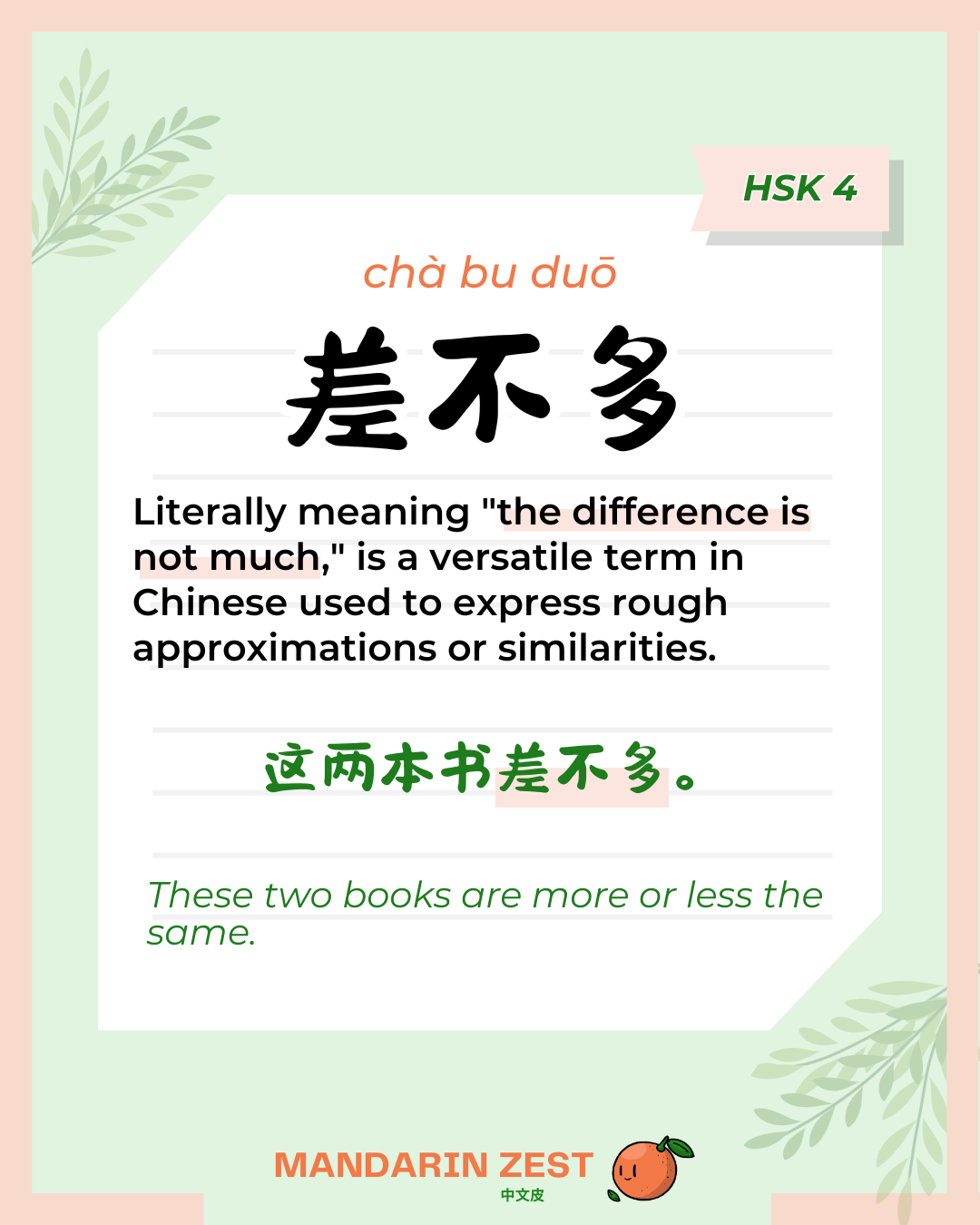差不多 (chàbuduō), literally meaning "the difference is not much," is a versatile term in Chinese used to express rough approximations or similarities.
Key Uses and Structures:
As a Predicate: 差不多 can stand alone to indicate that things are "more or less the same" or "similar." It is often understood as 差不多一样 (chàbuduō yīyàng) but without saying 一样.
Example:
这两本书差不多。(These two books are more or less the same.)As an Adverb: When used as an adverb, 差不多 comes before an adjective or verb to indicate "almost" or "nearly."
Structure:
差不多 + Adj. / Verb
Example:
他差不多完成了工作。(He has almost finished the work.)With a Quantity or Time Phrase: 差不多 can precede a time or quantity phrase to provide a rough estimate.
Structure:
差不多 + [Quantity Phrase] / [Time Phrase]
Example:
我们等了差不多两个小时。(We waited for almost two hours.)
Sample Sentences
昨天晚上我们开会开了差不多三个小时,大家都觉得很累了。Last night, we had a meeting for almost three hours, and everyone felt very tired.
这两家餐厅的菜差不多好吃,不过这家的价格便宜一些。The food at these two restaurants is more or less the same in taste, but this one is slightly cheaper.
今天的天气和昨天差不多,还是有点冷,记得多穿点衣服。Today’s weather is about the same as yesterday—still a bit cold, so remember to wear more clothes.
In a Text
周末的时候,我和朋友一起去爬山。那座山差不多有一千米高,爬到山顶需要差不多三个小时。一路上,我们看到了很多美丽的风景,山上的树和山下的差不多绿,只是这里的空气更清新。到了山顶,我们发现周围的几座山差不多一样高,非常壮观。休息了一会儿后,我们差不多下午三点开始下山,回到家已经累得不想动了。
壮观 (zhuàng guān): spectacular; magnificent; impressive
On the weekend, my friends and I went hiking. The mountain was about 1,000 meters high, and it took us almost three hours to reach the top. Along the way, we saw many beautiful views. The trees on the mountain were about as green as those at the foot of the mountain, but the air here was fresher. When we reached the top, we noticed that the surrounding mountains were almost the same height, which was very spectacular. After resting for a while, we started descending the mountain at around 3 PM, and by the time we got home, we were too tired to move.




